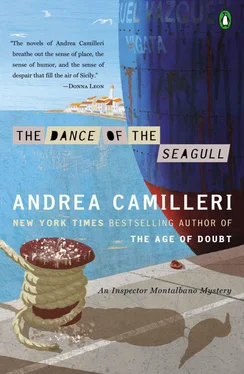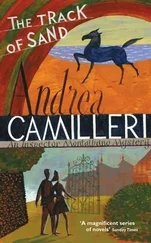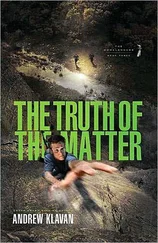The cop turned visibly pale.
“I paid for this fish! I swear!” he said, voice quavering.
“I don’t doubt it for a minute.”
“So what do you want, then?”
“I want to know where I can find Signor Rizzica.”
“You can find Rizzica in one of his warehouses.”
“And which ones are they?”
“Numbers three, four, and the last one.”
“Thanks.”
“Glad to be of service!” said the officer, clearly relieved and practically running away, terrified that Montalbano might change his mind and demand that he explain how he came by that crate of fish.
In front of the open door of warehouse number three was the same Ford van as that morning. Montalbano went inside and immediately saw Rizzica, who was talking with an air of concern to a man in overalls.
The moment he saw Montalbano, however, he came towards him, hand held out.
“Let’s go outside,” he said.
Apparently he didn’t want to talk in the presence of the man in overalls. They stopped in a sort of arch to one side of the wharf that smelled of shit and piss old and new, which was why there wasn’t anyone in the vicinity.
“Did you come by because of my complaint?”
“No. Did you file a formal complaint with Inspector Augello?”
“No, sir, not formally. But it’s still a complaint.”
“Have your boats come in?”
“No, there’s another hour and a half to go.”
“And the one that’s always late, the . . . what was its name?”
“The Maria Concetta ? No, today’s its day off. But tonight it would be better if they were all late.”
“Why?”
“Because one of my warehouses has been out of order since yesterday. The refrigeration system is down. You have no idea how much money it’s cost me. I had to throw all the fish back into the sea. The electrician says they’ll have to order a replacement part from Palermo. An’ just to rub it in, the two boats coming in now are full of fish; they had a really good haul today. I’m going to have to get the third warehouse up and running, the one I usually use only for—”
“But didn’t you say you had five trawlers?”
“Yessir.”
“How come you’ve only got two out?”
“I have ’em working in shifts, Inspector. Three go out, and two rest. An’ vice versa.”
“I see.”
“Listen, I have to go back inside. But about that thing I mentioned to you, Inspector Augello knows the whole story. He can answer your questions.”
“No problem. Listen, what did you say was the name of the captain of the Maria Concetta ?”
“Aureli. Salvatore Aureli.”
“One more thing. Do you remember the names of the rest of the crew?”
“I told ’em to Inspector Augello.”
“Tell me too.”
“Totò Albanese, Gaspano Bellavia, Peppe Dima, Gegè Fragapane, ’Ntonio Zambito, an’ two Tunisians whose names I don’ remember right now but I gave ’em to Inspector Augello.”
No Manzella. For a brief moment, he’d been hoping.

After three in the morning, the hustle and bustle had wound down for the most part. The trawlers were no longer moored in front of the cold storage houses. By now they were all at their berths inside the port. The refrigerator trucks had also all left. The great main doors of the storehouses were all locked, except for number three, where the electricians were still trying to repair the outage. The road, however . . .
The road wasn’t entirely deserted. There were still five or six people mingling about, talking and arguing. Two of them had even raised their voices and were about to get into a tussle. If it was always this way at this hour of the night, someone must surely have heard or even witnessed the scene of Fazio running away as someone ran after him, firing his gun.
Hadn’t the Customs cop said that after hearing the two shots he’d seen a high-powered motorcycle drive past? So therefore there had been at least one witness! But these were the kind of people who would never talk, Montalbano was absolutely certain of that.
All at once he felt a crushing fatigue descend upon him, so great that for a moment his knees buckled.
There was no point in wasting any more time. He decided he would go to the commissioner the following morning and tell him the whole story, so they could officially begin the search. He threw in the towel. The crucial thing was that the more time went by, the worse it was for Fazio, assuming he was still alive.
“Montalbano!”
He turned around and found himself face to face with Nicolò Zito.
“How did you know I was here?”
“Augello told me. I rang him at home after trying without success to contact you.”
“What’s going on?”
“I have to talk to you.”
“So talk.”
“Shall we go into my car?”
He’d parked it near the slips. The early morning wind was biting hard and Montalbano, exhausted, famished, and worried as he was, began to shiver from the cold.
Once inside the car, he leaned his head back against the seat and closed his eyes.
He reopened them when he smelled coffee. Zito had shoved the cap of a hot thermos of coffee under his nose. The inspector rejoiced.
“How long has it been since Fazio went missing?” the journalist asked.
Montalbano choked on his coffee. Zito slapped him twice on the back to help out.
“Who told you?”
“I got a phone call and then you confirmed it for me.”
“I did?!”
“You sure did. When you shouted ‘No!’ so that I wouldn’t call Fazio’s home. That pretty much sealed it for me. I realized then and there that something wasn’t right. What was he investigating?”
“That’s just it, Nicolò. I don’t know. He was working on his own, you see. And hadn’t told anyone. Who was it that called you?”
“I can’t tell you. The guy called me and said he thought he’d seen Fazio in a bad situation.”
“In what sense?”
“His head was wrapped, as if to cover a wound.”
“Was he alone?”
“No. But let me finish. Since he wasn’t sure it was actually Fazio, this gentleman wanted me to find out. Which I did, and so I called him back on his cell phone and told him I had the impression that you had confirmed his hunch, however indirectly. And so he kept telling me to call him back in two hours.”
“Sorry to interrupt, but why didn’t you contact us right away?”
“I’ll tell you in a second. So the guy called back two hours later and gave me precise directions as to where we could find him, so that he could explain everything. Do you want to go?”
“Of course. Where is it?”
“Over by Rivera. An hour-and-a-half drive away.”
“All right, let’s get moving. Would you please tell me why you didn’t call us?”
“Because the guy’s a fugitive, Salvo.”
So why would a fugitive from justice worry about the fate of a cop? There was no point in asking any questions, however. Zito would never divulge the informer’s name.
There was, however, one good thing in all this: Fazio was still alive.
“What did you tell Augello?”
“That I urgently needed to talk to you.”
“Did you mention that it had to do with Fazio?”
“No.”
Should he phone Mimì to tell him about the new development? No, it was probably best to let him sleep. And at the sound of that word in his mind, as if by sudden contagion, he closed his eyes automatically. And fell asleep.

He was awakened by the silence.
He was alone. It was daylight. The car was stopped along a dirt road in the open country. But all around him was not what you could really call country, only desolate, deserted land. A few stunted trees where it was impossible to tell what, if any, fruit they had ever borne, a few clumps of wild grass as tall as a man, thickets of sorghum, and a sea of white stones.
Читать дальше













